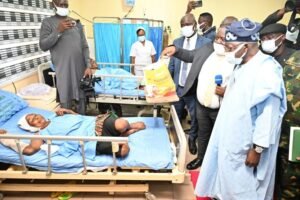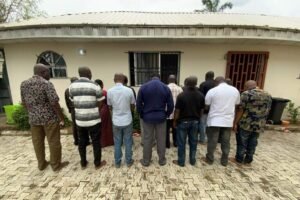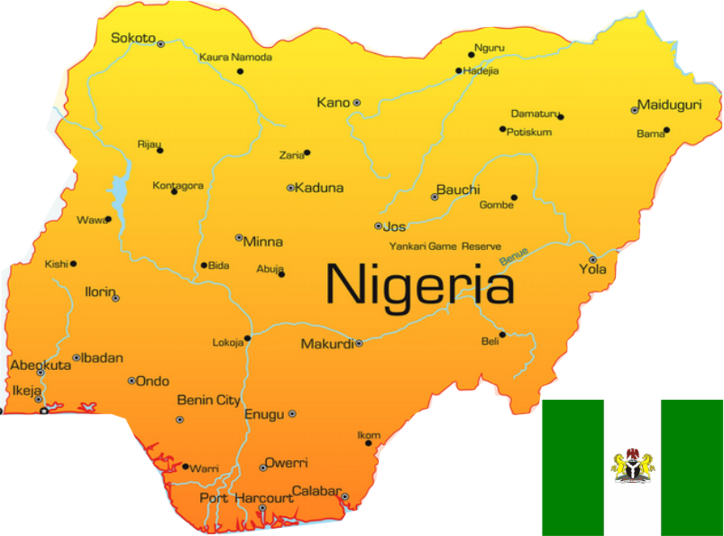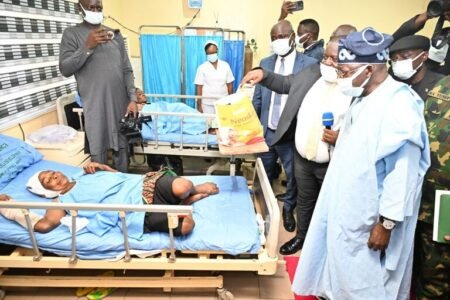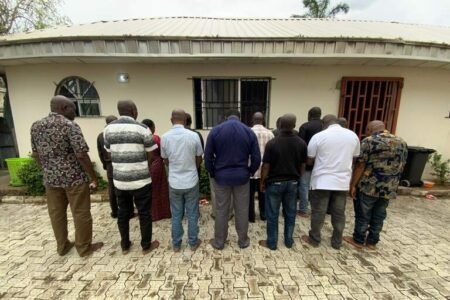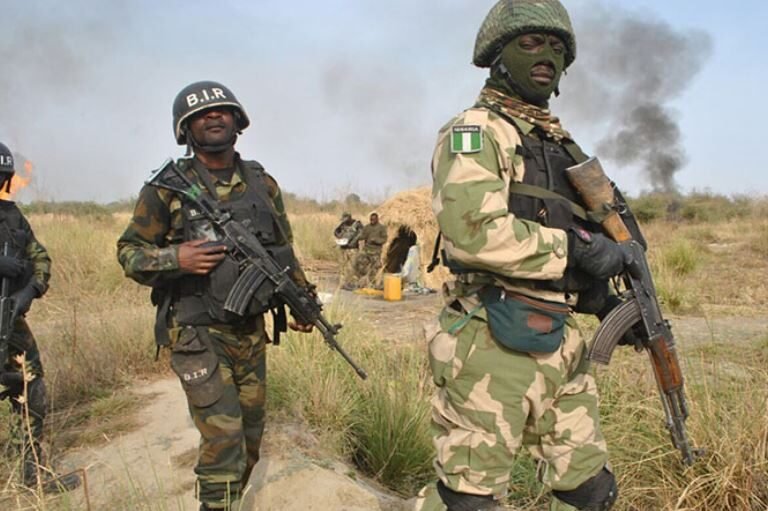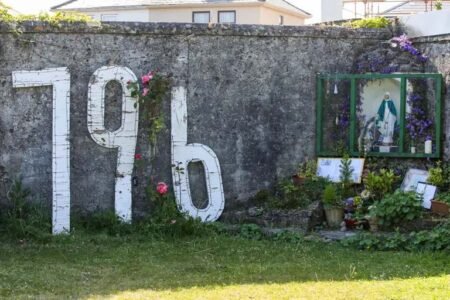By Arinze Oduah
Introduction
On May 25, 2020, George Floyd, an unarmed 46-year-old African-American was killed by Derek Chauvin, a white police officer, in Minneapolis, Minnesota, USA. This set off a chain of events around the world, including the pulling down of monuments to chattel slavery and the Trans-Atlantic slave trade. On May 26, 2020, I fortuitously participated in a conference on “Remembering to Prevent: Enhancing Collective Memory for Mass Atrocities Prevention” organized by the NGO ‘Global Rights’ and focusing on the situation in Nigeria. Panelists and participants debated the place of memory in Nigeria’s quest for justice and reconciliation to help prevent mass atrocities. At a time of increasing insecurity, separatist agitation, and inciting fake news, this conference was timely.
In the following paragraphs I summarize my contribution and recommendations in the hope that this will stimulate further discussions among diverse audiences, including civil society groups, government policy makers and academicians in ‘conflict studies’ leading to focused action to prevent mass atrocities.
Memory and History
Memory exists, even without deliberate effort to create it. It emerges from dynamic processes that produce and reshape it in the context of power relations. Therefore, it is “the object of disputes, conflicts, and struggles”. Memorials expressing memories are thus not passive, but active, even as monuments, street names, national holidays, education curricula, literature, film, drama, and so on. As Caroline Randall Williams wrote in a June 26, 2020 New York Times article: “What is a monument but a standing memory.”
History is “… what actually happened, whereas memory is the way the past casts its shadow over the present and the future”, or as Andreas Huyssen (2003) puts it: “…memory is the way the past is present.”
In Nigeria our memories and history are heavily contested, especially those relating to mass atrocities. While significant work has been done on our history, organized effort is lacking in shaping and aligning our memories of major conflict events. This intentional amnesia results in a discomfiting dissonance ranging from denial and obfuscation, to exaggeration and fabrication, and has given rise to conflicting and contradictory memories that co-exist uneasily in a combustible mixture presaging conflict. However, such an outcome is not inevitable if coordinated action is taken, drawing from the experiences of others who have incorporated memory initiatives into a suite of actions that help to prevent the reoccurrence of mass atrocities.
Do Memories Prevent or Provoke Mass Atrocities?
Some have argued that preserving memories of mass atrocities hardens the fundamental basis of conflict that produced those events. In other words, such memories deepen divisions and complicate efforts at reconciliation. Examples cited to justify this view include the Balkans and the Israel – Palestine conflict.
Others, including myself, take a different view, arguing that countries that evinced willful forgetfulness of mass atrocities experienced reoccurrence of these events. For example, the 1939-1945 Holocaust that was preceded by the 1904-1908 Herero-Nama genocide both of which were perpetrated by Germany.
Meanwhile, robust attention to memories helped create the European Union after World War II leading to the prevention of mass atrocities in Western Europe. Post-independence African examples include Rwanda, Tanzania (Zanzibar), Gambia, Cote D’Ivoire, South Africa, and Namibia. In Latin America, memory initiatives continue to play a key part in reconciling aggrieved parties in Argentina, Peru, Chile and Colombia.
The risk of memory preservation promoting conflict can be avoided by adopting adequately resourced and appropriate comprehensive strategies targeting the prevention of violence. By controlling the narrative of past atrocities, it can be purposefully directed towards justice and reconciliation, and away from division and conflict. While this is not a silver bullet, it is an essential contributor to reconciliation.
The Case for Public Memory
As we saw earlier, memory is an active force that can unite or divide. Fortunately, we can intervene to shape memories of mass atrocities such that they conduce to reconciliation rather than conflict. More inclusive and representative memories promote social justice and reconciliation. Unlike social memory that is created by atomized kinship groups, or collective memory that is shared by people outside their kinship contexts without knowing each other, public memory is created when groups of previously unrelated people interact in the public sphere to shape and adopt the memory of an event. This inclusive public memory unites all parties that contributed in shaping it and is essential for reconciling them.
In Nigeria, we have the opportunity to intentionally invest in the subjective process of creating public memories, while simultaneously preempting the hardening of social and collective memories into systematic ideologies of exclusion that are implicated in mass atrocities.
Using Memories to Mitigate the Risk Factors of Mass Atrocities
The process of creating public memories, and the public memories that emerge therefrom, mitigate the risk factors for mass atrocities. Research, such as that done by James Waller (2002, 2016), has identified four categories of five risk factors each that are correlated with mass atrocities, and they are: governance; conflict history; economic conditions; and social fragmentation. Each of these four categories of risk factors can be mitigated by memory initiatives designed to “commemorate or enhance understanding of a conflictive past, including—but not limited to—the erection and maintenance of memorials and monuments, the operation of museums and exhibits, traditional ceremonies and rituals, musical and theatrical performances on relevant topics, the running of educational, awareness-raising, dialogue and remembrance programs, the teaching of history, and the gathering and preservation of information.”
Memory initiatives are integral to the process for synthesizing public memories that promote social justice and reconciliation, that in turn help to prevent mass atrocities in a virtuous cycle.
The Post-Independence Nigerian Situation
Nigeria ranks high on all four categories of risk factors for mass atrocities. On governance, regimes since independence have been anocratic. They have struggled with a legitimacy deficit, and underperformed in the delivery of basic social goods. The haunting legacy of the Nigeria-Biafra War, the current conflicts in the North East and North West, and past significant conflict events across the country elevate the risk of conflict history. Social fragmentation appears to be worsening, including sectarian divisions and separatist agitation. Lastly, economic conditions are deteriorating, with rising unemployment and inflation, and an economic growth rate trailing population growth to deepen poverty. Given this situation, consistent and coordinated action, incorporating strategic memory initiatives, is necessary to prevent mass atrocities.
Recommendations: Memory Initiatives to Mitigate Mass Atrocities Risk Factors
1. A national strategy for memory and history to stimulate and sustain dialogue for reconciliation based on a minimum consensus on major conflict events, and how to memorialize them. Education and a continuous refresh of narratives to create public memories will feature prominently in this strategy.
2. Review of the mandate of the National Commission for Museums and Monuments to expand its remit from administration of antiquities to the creation of memorials according to a coherent national agenda, with mass atrocity prevention as a specific objective.
3. A review of current memorials and monuments across the country, particularly those associated directly or indirectly with conflict events to avoid divisive or insensitive memorialization. This includes State and Federal facilities and infrastructure such as roads, airports, educational institutions, stadia, bank notes, postage stamps, and so on named after historical figures.
4. Deployment of the full range of transitional and restorative justice approaches conducive to the creation of public memories at both Federal and State levels, including: hearings, special courts, and prosecution; truth and reconciliation commissions; lustration and vetting; and finally through institutional reform.
5. An active and engaged civil society cutting across Nigeria, and intentionally mobilized to jettison old memories of division and create new public memories of justice and reconciliation.
6. A progressive demilitarization and de-politicization of our public physical spaces to capture memories from below, especially from non-state participants, and the recording of the names of all victims of mass atrocities in appropriate memorials.
7. Creative use of economic instruments and policies to promote restitution, integration, reconciliation and peace.
These recommendations require strategic and sustained effort over a long time horizon, and need the combined effort of politicians and society as whole to build public memories that promote justice and reconciliation. The price of willful forgetfulness is high, and the task of building public memories of mass atrocities is more urgent than ever, especially now that some of the key actors can still contribute.
